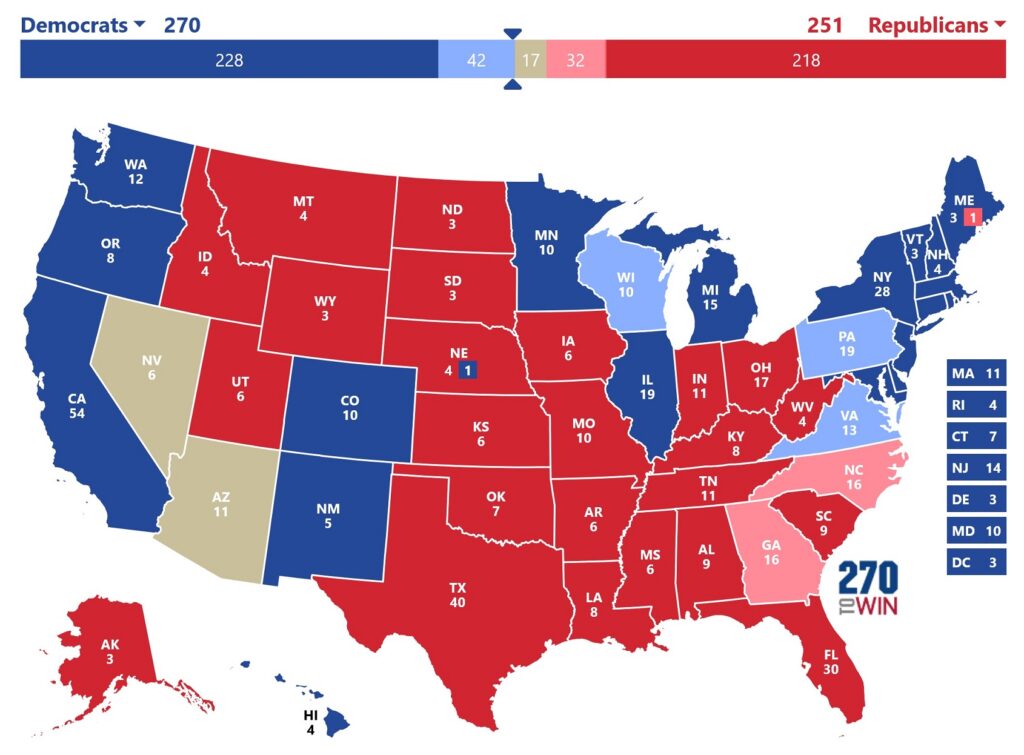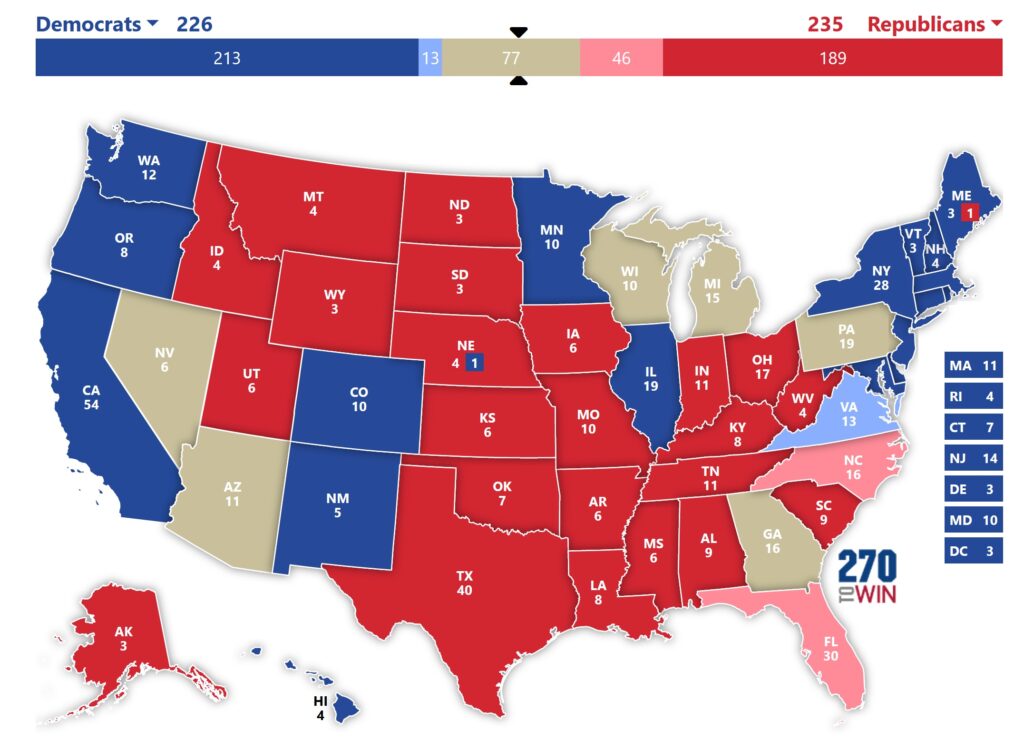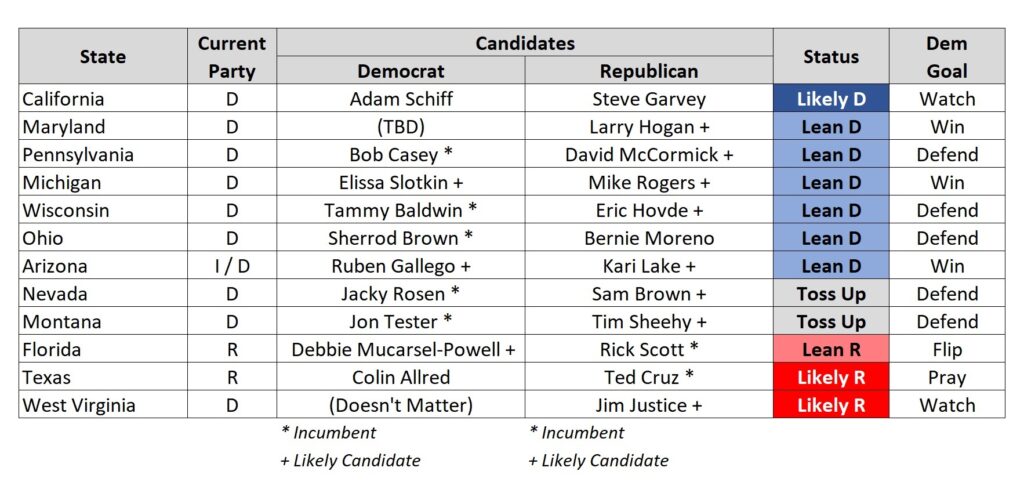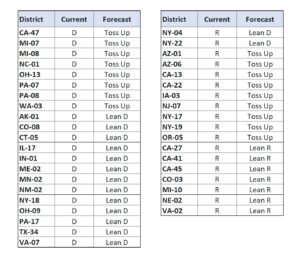As I was reading multiple news summaries and opinion pieces related to the Supreme Court’s oral arguments on 4/25/2024 for “Trump v. United States”, I was mentally composing an expletive-filled rant to publish herein. I was more than appalled by the Court’s insane take on Presidential immunity. With considerable effort, I managed to table my composition in order to calm down and to do some more homework.
The homework primarily entailed studying the entire 192-page transcript of the oral arguments and listening to a 2-hour, 39-minute audio recording of the session. The former allowed for more in-depth consideration of the various positions; the latter allowed for the attitudes and biases of the various speakers to be revealed via verbal nuances that don’t translate well to the written word. I also reviewed the relevant portions of our Constitution for myself, and I read/watched numerous analyses from across the political spectrum.
I am now more informed. And I am now even more pissed off.
While I’m not an attorney, a degree in constitutional law is completely unnecessary to draw what should be a patently obvious conclusion:
No President should be immune from criminal charges under U.S. law. NO ONE is above the law, including the President. It’s what we were all taught in grade school.
Criminal actions taken by a sitting President should be subject to criminal charges once the President is no longer in office. Impeachment and removal by constitutional means would be necessary to bring criminal charges before the end of his or her term in office, but a former President should enjoy no criminal immunity. [It makes some sense from a practical standpoint for a former President to be immune from civil charges brought against official actions taken while in office. That, however, is an entirely different conversation.]
Of course, legal actions taken by a President related to official duties, regardless of political bias, should not be subject to criminal charges. For example, deploying the U.S. military to assassinate a foreign leader would likely be legal, given the broad Constitutional powers granted to the Commander in Chief. Such an action might not particularly align with American values, but it would probably be legal. However, deploying the U.S. military to assassinate an American political rival should be incredibly illegal. Period.
And yet, …
A Harvard-educated lawyer stood in front of nine Justices of the Supreme Court of the United State and claimed that a President cannot be prosecuted, even after leaving office, for ordering the assassination of a political opponent unless the President has first been impeached, convicted, and removed from office by Congress. Rather than being laughed out of the building, a majority of the nine justices seemed eager to agree.
A few of my own observations follow.
The Justices
There are some real assholes on the Court:
- Alito spouted numerous proposals while explicitly stating that he didn’t yet know how he’d constitutionally defend them. WTF. It’s not his job to write new laws; it’s his job to apply the Constitution to existing laws. Alito, however, wanted to define an outcome that personally suited him and THEN determine how to justify it. Asshole.
- Gorsuch didn’t want to hear anything except the sound of his own voice. He asked questions but then constantly interrupted with his own answers. Asshole.
- Kavanaugh seemed to argue that if a law doesn’t explicitly state that it applies to the President, then it doesn’t apply to the President. Stupid asshole.
As for the other justices:
- Thomas, as usual, wasn’t particularly verbose. However, it’s abundantly clear that he’d vote to give Trump complete immunity and then throw him a party – likely funded by one of his billionaire benefactors.
- Roberts, as usual, kept his cards fairly close to his chest. However, he left little doubt that he wants to punt this down to a district court and let Trump off the hook prior to the 2024 election.
- Coney Barrett surprised me. She asked good questions of both sides. She correctly noted that, in any other case, they’d let the criminal trail proceed with instructions as to how the lower court should consider any possible immunity claims. The case would then, of course, be reviewable on appeal – all the way back to the Supreme Court – if there’s a conviction. While that seems like a sane, fair approach, it won’t happen. It would also not surprise me at all if Coney Barrett gets intimidated into joining the other conservatives during deliberations.
- Sotomayor, Kagan, and Jackson seemed quite shell-shocked by their conservative colleagues. They did their best to highlight the absurdity of the immunity claims and the fact that the conservatives were arguing against their own judicial philosophies. They quickly knew they were going to lose, and they seemed genuinely incredulous. Same.
Textualists
The conservatives on the Court have repeatedly claimed to be textualists who interpret the Constitution based exclusively on the ordinary meaning of the original text. In that world, there can be no consideration of perceived intentions, implied meanings, or real-world concerns. Only the text matters. It was the lack of the word “abortion” in the Constitution that these conservatives used to overturn Roe v. Wade.
And yet, despite no mention of “immunity” in the Constitution, the conservative majority seems to have divined that Presidential immunity is implied by the Executive Vesting Clause. No. it’s not. I can read. Immunity is neither stated nor implied anywhere in the Constitution. In fact, the Executive Vesting Clause does state that the President has a duty to “take Care that the Laws be faithfully executed.” That’s the polar opposite of immunity.
As Kagan rightfully noted:
“The framers did not put an immunity clause into the Constitution. They knew how to. There were immunity clauses in some state constitutions. They knew how to give legislative immunity. They didn’t provide immunity to the president. And, you know, not so surprising. They were reacting against a monarch who claimed to be above the law.”
Official vs. Private Actions
There were a lot of discussions about a President’s official vs. private actions.
The defense conceded early that private actions by the President should not be subject to immunity but then proceeded to essentially argue that there are no private actions for a sitting President. Every action that a President takes could be considered an official act merely because it was taken by the President. Under questioning, the defense explicitly argued that a President could sell an ambassador appointment, provide nuclear secrets to a foreign adversary, stage a coup, and assassinate a political opponent – all as official acts immune from criminal prosecution unless preceded by a Congressional impeachment, conviction, and removal from office.
Coney Barrett then rightfully asked: “What if the criminal conduct isn’t discovered until after the president is out of office, so there was no opportunity for impeachment?”
To which the defense casually responded: “We say the framers assumed the risk of under-enforcement.”
Allowing a President to kill a political rival is an acceptable “risk of under-enforcement”?
Wow.
Case and Precedent
The conservatives were absolutely adamant that their positions had nothing at all to do with Trump and everything to do with setting precedents:
- Alito: “I’m not discussing the particular facts of this case.”
- Kavanugh: “I’m not focused on the here and now of this case.”
- Gorsuch: “I’m not concerned about this case.”
First: Bullshit.
Second: Why the hell aren’t you concerned about this case? It’s the case before you and IT’S YOUR JOB to rule on it. While precedent matters, this case also matters. It matters a lot. If you must, you could explicitly state that a decision here isn’t intended to set a precedent (see Bush v. Gore). But the nation needs a ruling on this case, and it needs it before the election.
Timing
Which brings us to the calendar.
The Supreme Court sets its own case docket and schedule. It can act very quickly; it can drag its heels. It can push things to lower courts when it so desires; it can grant a writ of certiorari to grab any case from any lower court. If a majority wants to delay a case forever, it can easily find ways to do so.
I’ll get back to this point in a bit.
Faith in the Justice System
Here’s something that was largely swept under the rug during oral arguments: Being charged with a crime isn’t the same as being convicted of a crime. Immunity isn’t necessary if there’s no crime that can be proved in a court of law.
In an attempt to make this point, the prosecution argued that any criminal allegations first need to be presented to a grand jury, which votes on whether or not to issue an indictment. There’s then a structured jury trial and an appellate process, all the way up to the Supreme Court, that guarantees due process for everyone, including former Presidents. When the defense noted that grand juries do sometimes refuse to even issue requested indictments, Alito interrupted with: “Every once in a while there’s an eclipse, too.”
That’s right. A Supreme Court justice just mocked the American judicial system in open court. Hilarious, huh?
Maybe Alito can work this into his stand-up routine: While conservatives would heavy rely on the impeachment process to hold Presidents accountable for illegal actions, can you guess how many times in American history a President has been impeached, convicted, removed from office, and then held accountable for a criminal act? Zero! <Ba dum tss!>
I’m here all week. Try the veal.
History
There were minimal discussions of relevant history related to Presidents and criminal actions. None, however, seemed to drive home any point. Unfortunately, there was actually a point to be made.
The Nixon discussions focused on Nixon v. Fitzgerald which (by a 5-4 majority) granted absolute immunity to a President in civil cases for any official action taken while in office. That case had nothing at all to do with criminal conduct and is completely irrelevant here, despite numerous attempts to make it so. Of note, though, is that Nixon also accepted a full pardon from Ford – which, by definition, implied Nixon’s acceptance that he had committed a crime which required said pardon.
Although it wasn’t mentioned in oral arguments, much has been made of Clinton’s legal issues related to possible perjury charges. Clinton was impeached for that action but was not convicted. Could he have still been criminally charged after leaving office? Yes, that was recognized as a possibility and, in fact, Clinton accepted a five-year suspension of his law license and agreed to pay a fine of $25,000 in a plea deal to avoid indictment on the perjury charge. He thus recognized that criminal charges were indeed possible.
Alito brought up Roosevelt’s decision to intern Japanese-Americans during World War II, sarcastically asking if that action could have been subject to criminal charges. He presented it as a “gotcha” question – which was strange on multiple levels. Japanese-American internment camps weren’t exactly an apex of American history. More to the point, however, is that the Supreme Court at the time ruled that the camps were legal. The case went to court and the court ruled. End of story.
In short, there is no historical argument for granting a President immunity from criminal prosecution. Indeed, the historical precedent firmly implies that Presidents are, in fact, answerable in court for their actions.
My Prediction
My own bet is that Alito, Thomas, Gorsuch, and Kavanaugh will form the core of the majority opinion. While those four would likely just give Trump practical immunity from any criminal prosecution and end the current criminal cases outright, they may need to settle for something less to get Roberts to sign on. Roberts is slightly more concerned than others about the reputation of the Court and he might balk at joining such a blatantly political opinion.
With Roberts, the five-vote majority (six if Coney Barrett caves) will likely send the case back to a district court to define what crimes can and cannot be charged against a former President based on some random and frankly meaningless instructions. This approach will be solely designed to delay the criminal trial until after the 2024 election and, to that end, the Supreme Court might not even issue their opinion until August. Because they can.
If Trump wins the election, his Justice Department will simply drop the case. If Trump loses the election, the Supreme Court will take the case back and overrule any district court opinion that was unfavorable to Trump. In either case, Trump wins. Game over.
And, of course, another Trump presidency would now be completely unbound by any threat of accountability for any criminal actions. Just think about that for a moment.
Shit.
A Proposal
The Supreme Court certainly seems poised to guarantee that Trump will not be held accountable for anything before the November elections. It’s also likely that the Court will pocket enough cards to be able to grant Trump full immunity should he lose the election. I’m sure the Court would dearly love to figure out how to grant that immunity solely to Trump without setting a precedent, but that may be beyond the limits of their twisted logic. Or not.
In any case, we now have yet another reason to want Biden to win re-election. Personally, I’m considering drafting an open letter that might look something like this:
Dear President Biden:
We really, really need you to win re-election. However, if you unfortunately lose, we’d like to make a modest proposal.
The Supreme Court has opened the door to making anything that a President does completely legal. That seems kinda cool since, well, you’re the President!
Here’s the thing: Losing the election doesn’t mean you necessarily have to leave office! There’s a whole lot of messing around you can apparently do with complete immunity. While we would suggest identifying someone with a higher IQ than Rudy Giuliani to lead your election-tampering efforts, we don’t consider that to be a particularly high bar.
You will need to get 34 Democratic Senators on-board to avoid that whole impeachment/conviction thing. History is firmly on your side there. Come to think of it, though, you might consider screwing with things enough to make sure that Democrats maintain a solid Senate majority – which should be a great selling point for you. Guaranteeing a majority in the House would also be nice. Hey, you’re the President. You can do whatever you want!
Now, sure, the Supreme Court will subsequently claim that they most certainly didn’t mean for criminal immunity to apply to a Democratic President. And here’s where you might need to get just a little creative. The Court seemed open to the idea that ordering assassinations are merely a “risk of under-enforcement” of Presidential immunity. While we will stop well short of making specific suggestions, we will simply remind you that Presidents have the power to appoint replacements for any Supreme Court justices that are, uh, no longer able to serve.
Good luck in November!
Sincerely,
America




